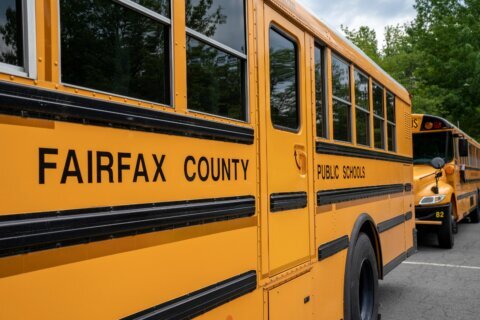A game played in a high school English classroom in Fairfax County, Virginia, has angered some local military families.
The game, called “Identify Your Privilege,” displayed boxes for statuses such as Christian, white, heterosexual and “never lost a loved one.”
The game also included a box labeled “Military Kid.”
WTOP’s news partners at NBC Washington spoke with one mother who served in the Army alongside her husband.
“I have always viewed being a military child as being a more difficult thing,” Rebecca Brinker said. “The kids are definitely affected by the absence of their parents.”
Brinker said her husband was deployed during the birth of their son, who just graduated from Fairfax County Public Schools.
“The fact that they want military kids to feel embarrassed that they are military kids, that they’re privileged, or that it’s something they shouldn’t want to be or should be ashamed of, it’s very upsetting to me,” Brinker said.
A picture of the game has been widely shared on social media, including by Fairfax County Supervisor Pat Herrity.
This is over the top – time for FCPS to get away from identity politics and back to teaching our kids. pic.twitter.com/WtB2DLuhgH
— Supervisor Pat Herrity (@PatHerrity) January 19, 2022
“I was not very happy. The lesson is divisive and it is clearly offensive, especially to our military families,” Herrity told NBC4.
Fairfax County Public Schools said in a statement that the game “was used within a high school English unit on perspective in storytelling aligned to Virginia Standards – to provide students with an opportunity to reflect on their own experiences while building their critical thinking skills.”
They added, “However, the design of this activity does not reflect the seriousness of the topic” and said it has “understandably caused concern.”
The school system said they revised the activity and “apologize for any offense it may have unintentionally caused.” They added that they remain “committed to equipping students with the skills to recognize multiple perspectives, analyze bias, and examine privilege as 21st-century learners.”








